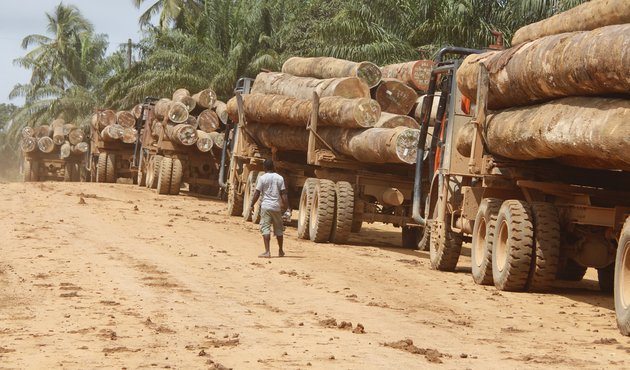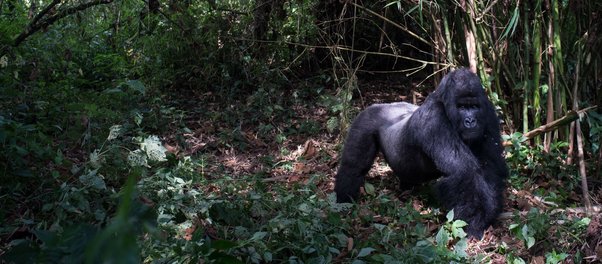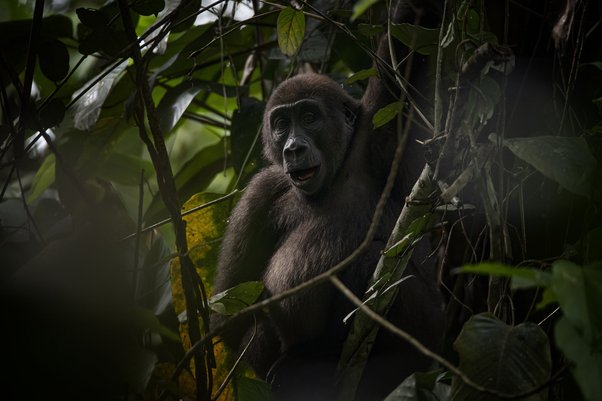We reveal how all of Liberia’s large logging contracts are illegal on multiple counts
Liberia’s forestry sector has a long history of corruption, crime and conflict.
During the country’s 14-year war, logging contracts were handed out to cronies of then-President Charles Taylor. Revenues from the sale of timber paid for weapons that helped prolong the conflict that claimed an estimated 250,000 lives.
Over the past decade the government has made considerable efforts to reverse this trend, cancelling wartime contracts and passing reformed forest laws.
Meanwhile Liberia’s international partners, including the EU, UK, US and the World Bank, have sponsored reform programmes to crack down on corruption and improve the management of the country’s forests.
This report, Hold the Line, is the result of a Global Witness investigation into the success of these efforts.
It reveals how all of Liberia’s large logging contracts – which cover 10% of the country – are illegal on multiple counts. Its main findings include:
- Logging companies are illegally hiding their owners. Global Witness has collected evidence demonstrating that logging companies are owned by powerful government officials such as House of Representatives members Alex Tyler, Moses Kollie and Ricks Toweh. This despite a ban on Liberian politicians owning companies with logging contracts.
- Companies are failing to pay their taxes, and currently owe an immense US$25 million to the cash-strapped treasury. If paid, this would amount to nearly 5% of Liberia’s entire budget.
- Companies have illegally-manipulated their logging data on a massive scale, concealing how many trees they are actually felling.
Responsibility for confronting illegal logging ultimately lies with the Liberian government.
However, the report also sets out recommendations for the country’s international partners. These include:
- The European Union, which has signed a treaty with Liberia promoting trade in legal timber (called a Voluntary Partnership Agreement), should make clear it will not allow timber from Liberia’s current large contracts into Europe.
- Norway, which has signed a US$150 million deal with Liberia promoting community forestry and conservation, should ensure Liberia investigates and cancels illegal contracts as the country promised in the deal.
- The Liberian Extractive Industries Transparency Initiative, which requires natural resource companies to declare their real, or “beneficial,” owners should penalise companies that have failed to report or reported incorrect ownership information.
-
Holding the line: Liberia's logging accountability 1.0MB (pdf format)
-
Response to this report from the Liberian government’s Forestry Development Authority 72.9KB (pdf format)
-
Response to this report from the logging company International Consultants Capital 68.1KB (pdf format)
-
Response to this report by SGS 136.1KB (pdf format)



